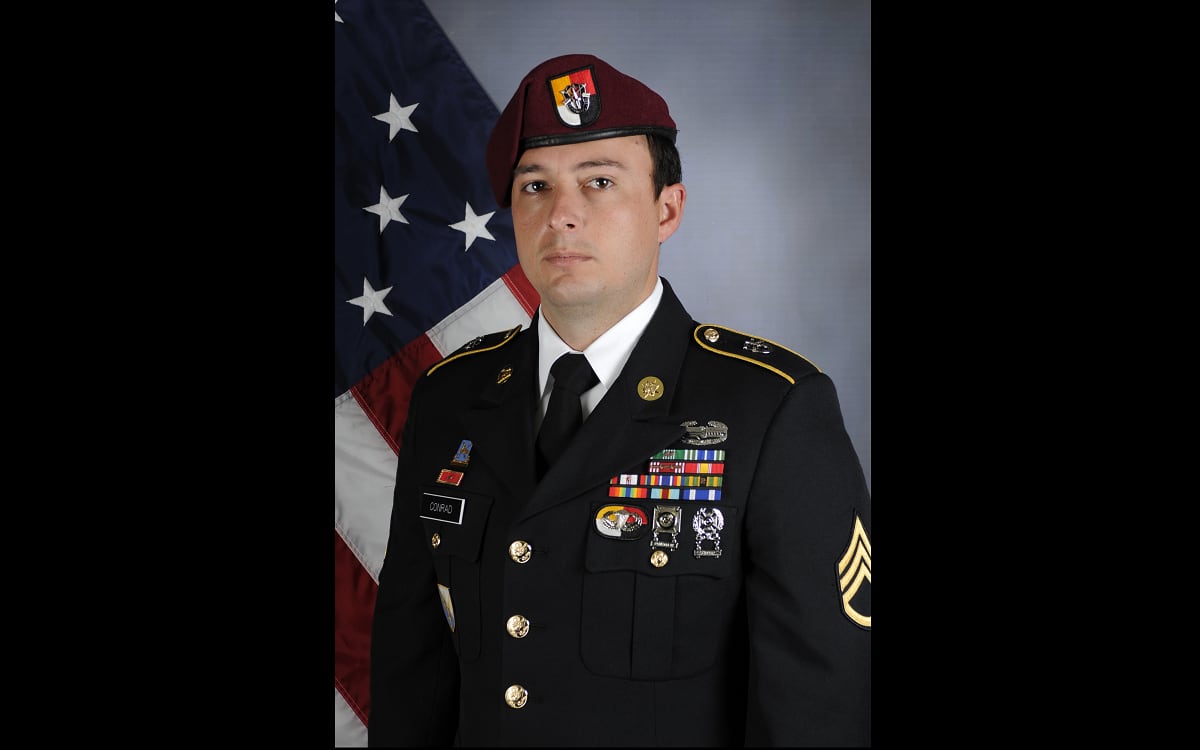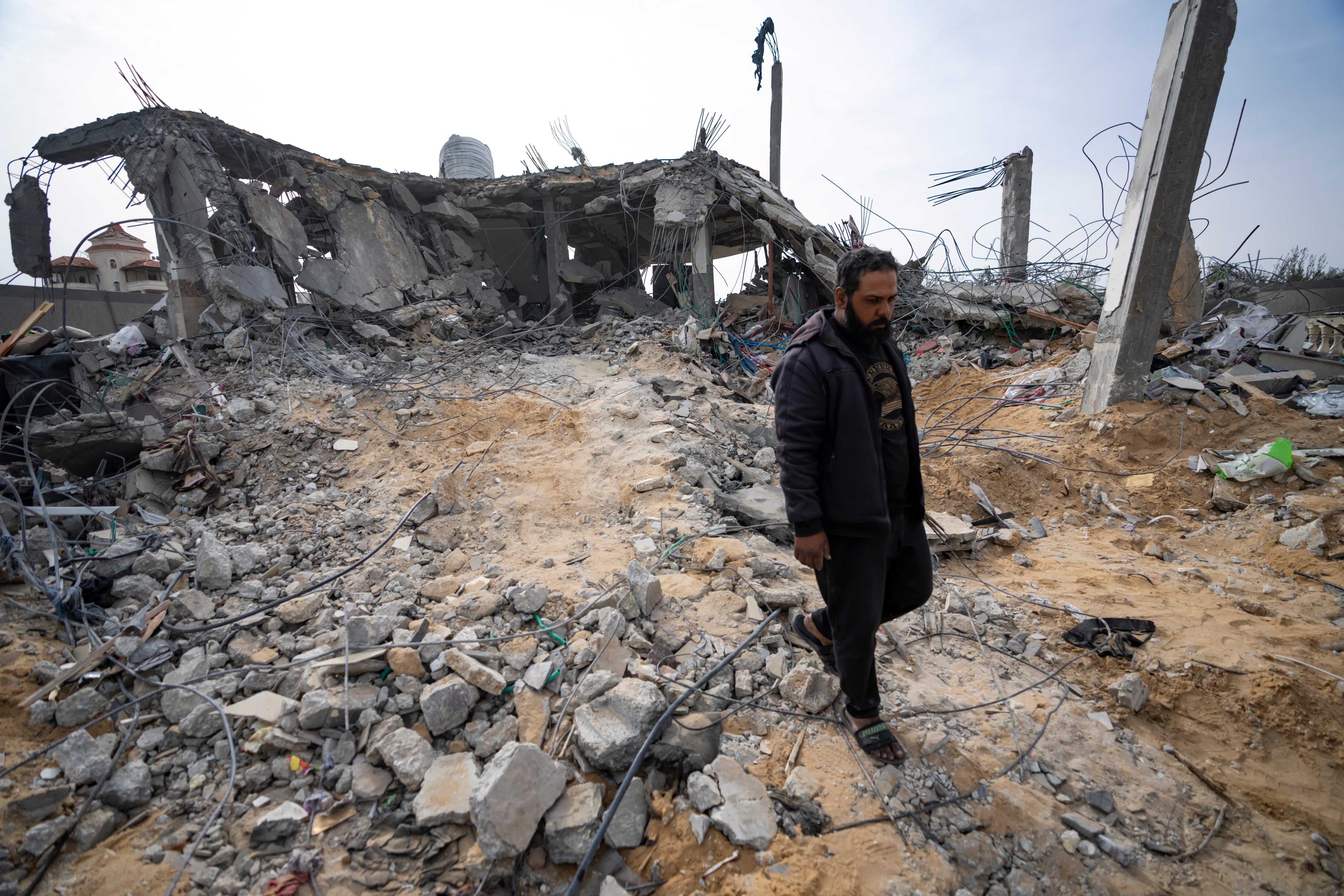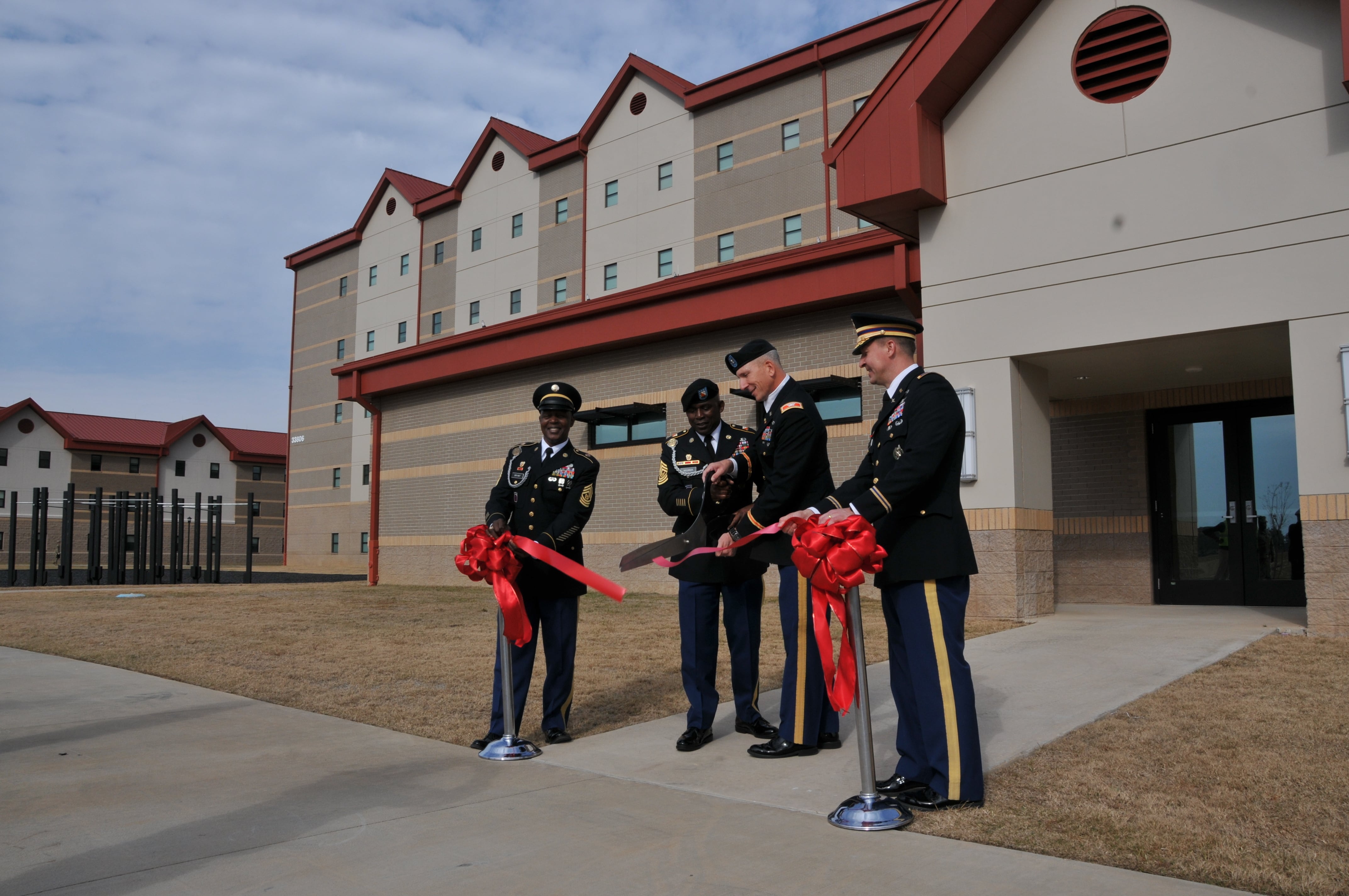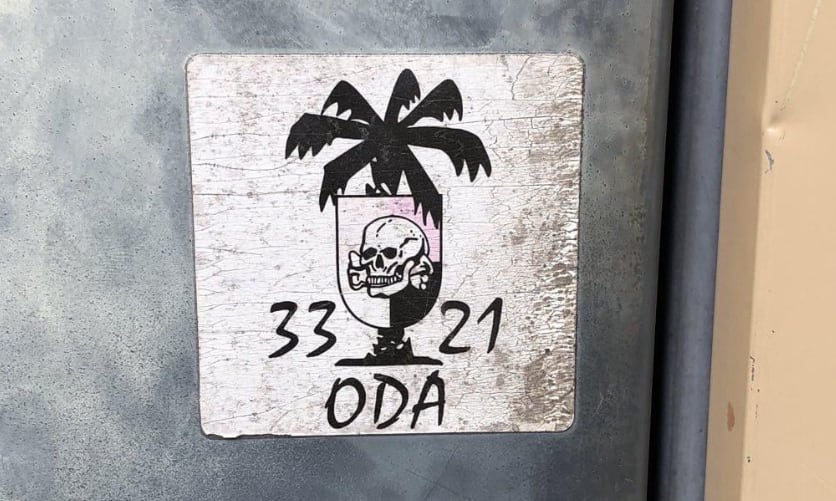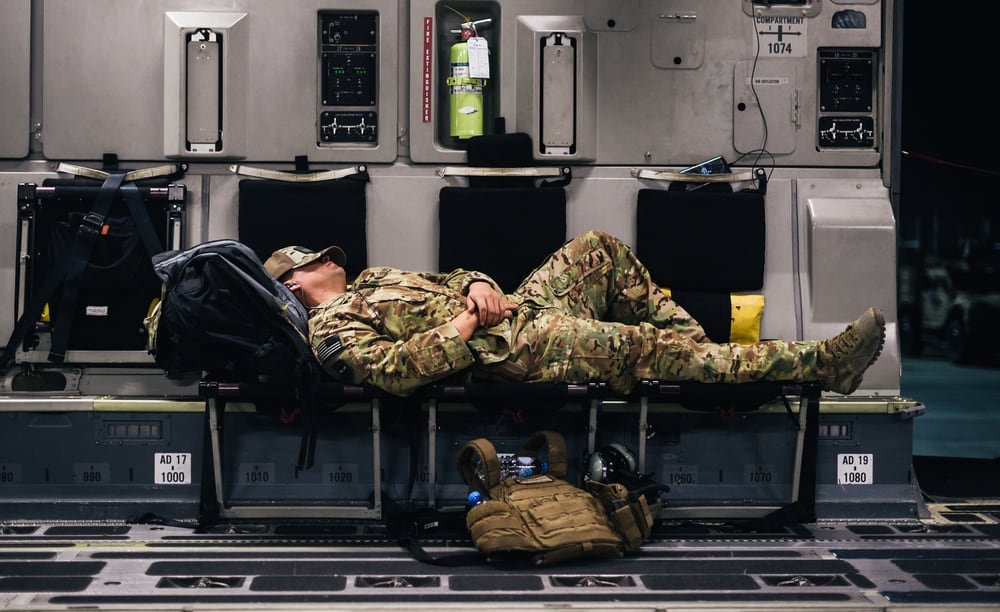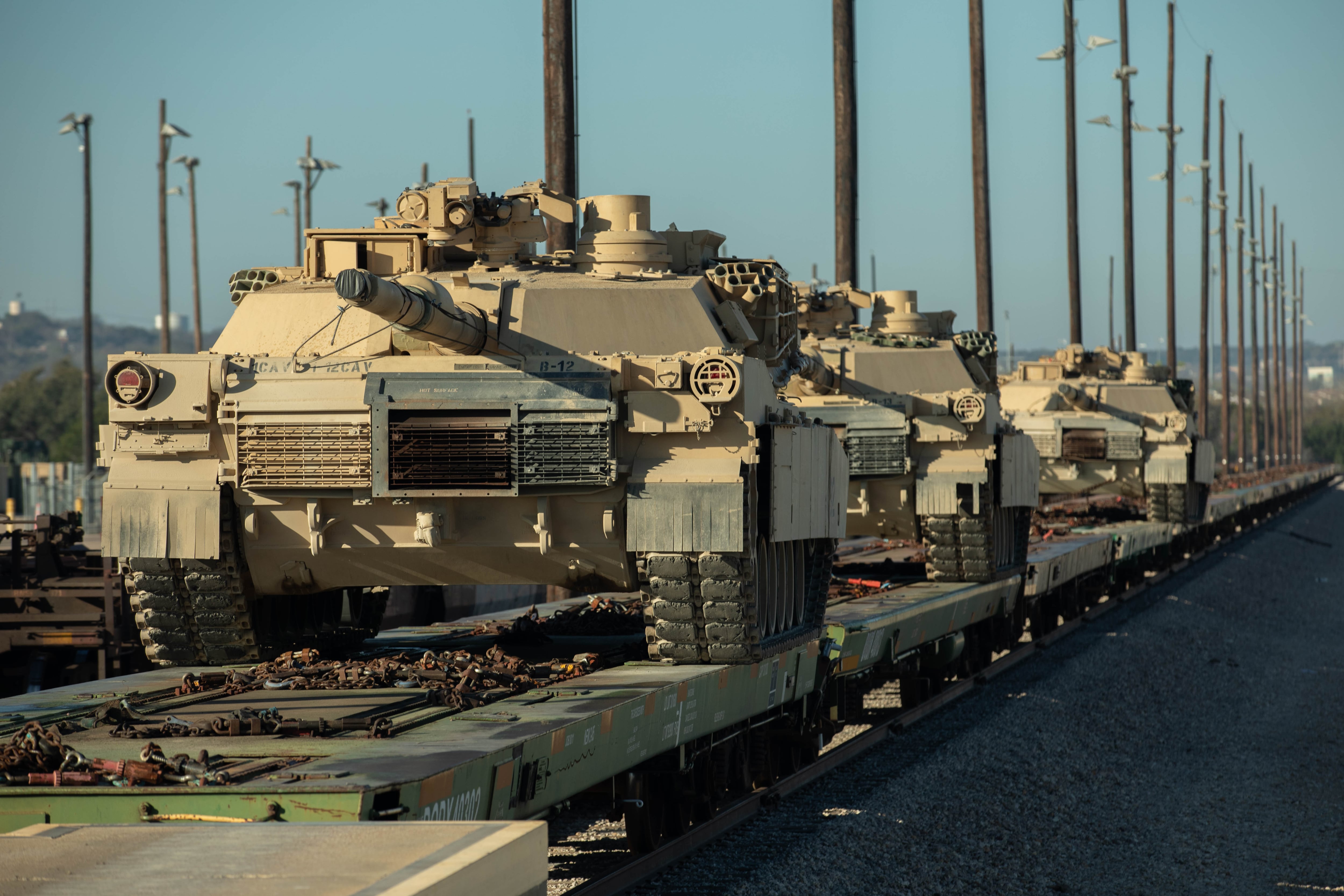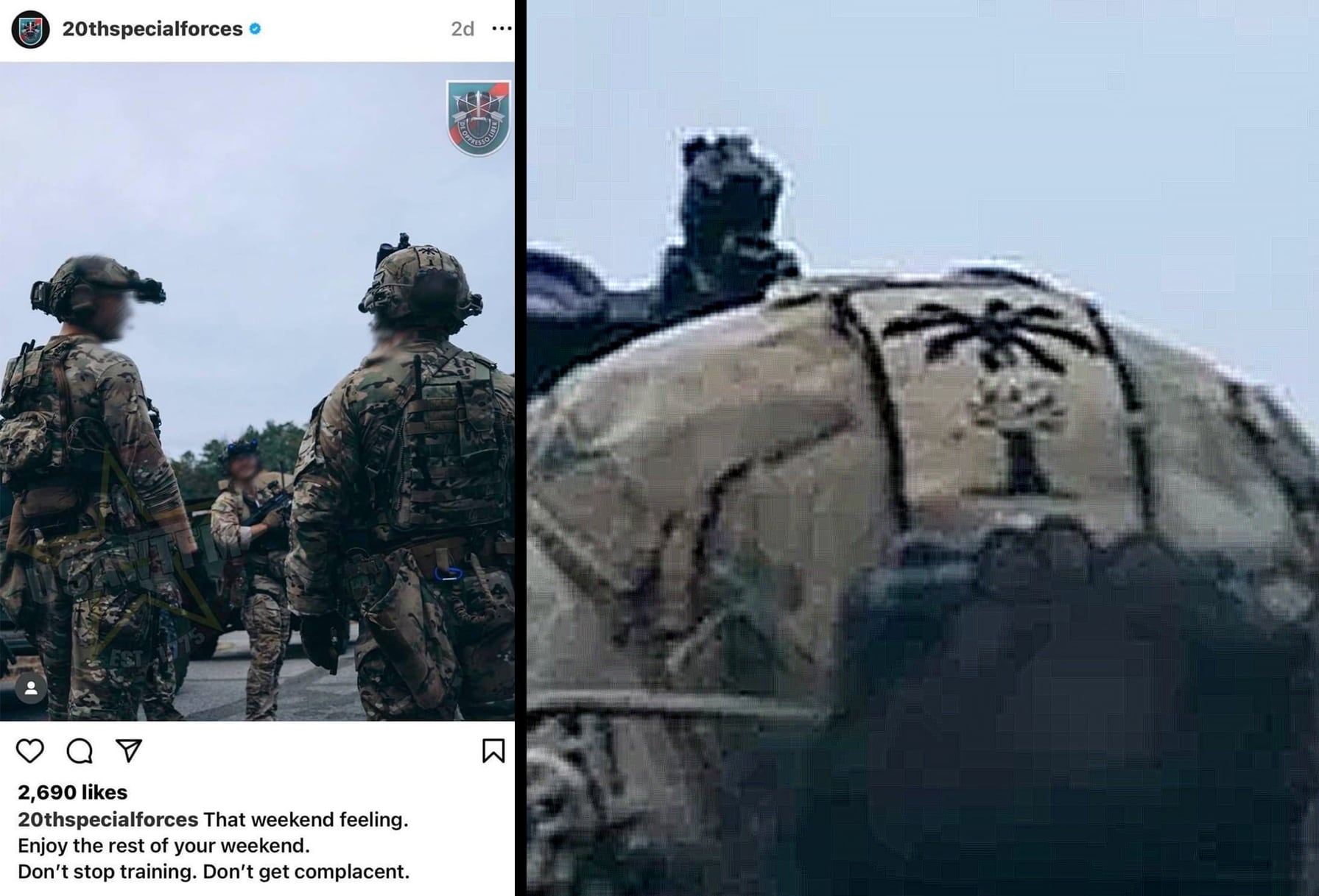The U.S. military has killed an al-Shabaab militant it says participated in an attack against American forces that left a U.S. soldier dead and four other Americans wounded.
During an airstrike on April 19, two al-Shabaab militants were killed. One of them was Abdullahi Jibiyow, a mortar team leader responsible for multiple attacks in the Lower Juba River Valley, in southern Somalia, according to U.S. Africa Command.
Jibiyow was also responsible for the attack on June 8, 2018, that killed Army Staff Sgt. Alexander Conrad, Air Force Col. Chris Karns, AFRICOM’s spokesman, told Military Times.
Conrad was assigned to 1st Battalion, 3rd Special Forces Group, out of Fort Bragg, North Carolina, at the time of his death. He had been in the Army since 2010 and served as a human intelligence collector.
Conrad was killed by enemy indirect fire while supporting Operation Octave Shield, according to the Pentagon. Octave Shield is the code name for the mission focused on targeting militant groups in Somalia.
Conrad was part of a contingent of Americans who were providing advice, assistance and aerial surveillance to partner forces when they came under attack from mortars and small-arms fire at about 2:45 p.m. local time in Jubaland, about 220 miles southwest of Mogadishu.
U.S. military activities in Somalia include remote or accompanied advise and assist missions, as well as the building, training and equipping of Somali combat units, such as the Danab advanced infantry brigade.
AFRICOM officials have stated in the past that training and fielding Danab forces is the primary line of effort in country. When necessary, however, the U.S. force is also able to provide kinetic effects.
RELATED
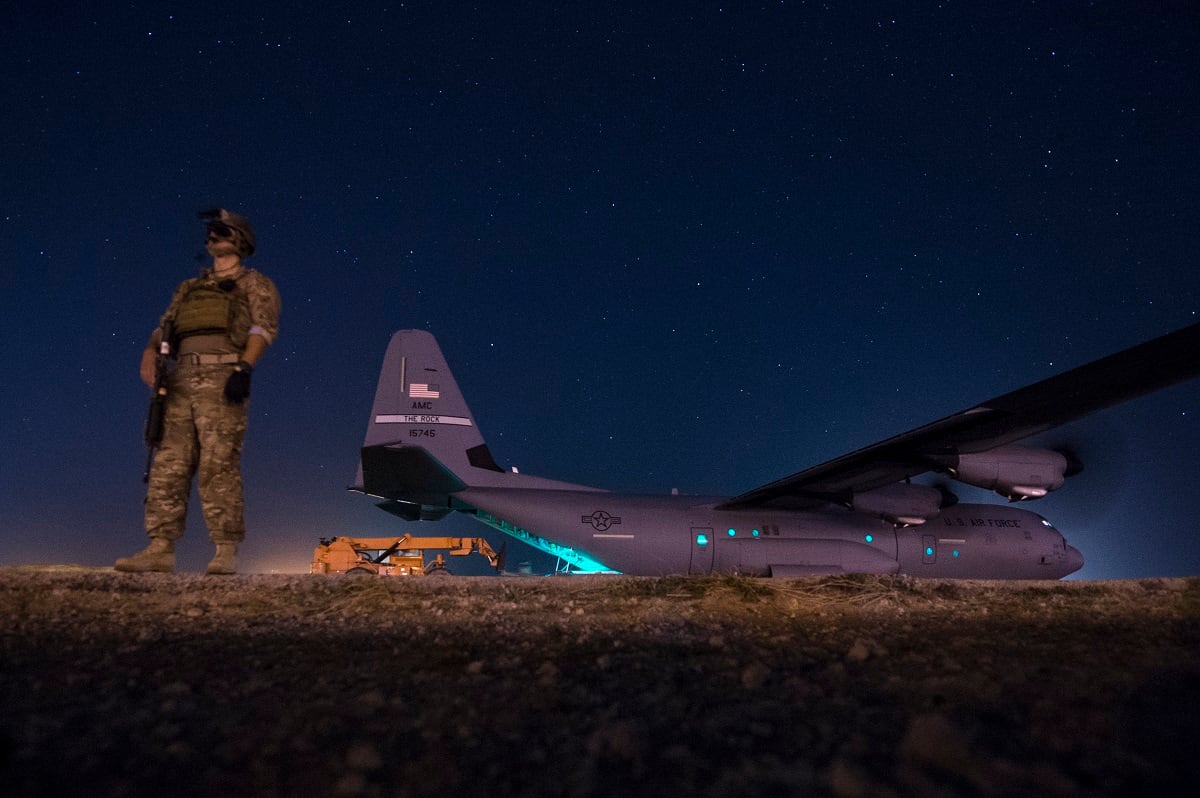
“The U.S. is supporting our Somali partner efforts to remove al-Shabaab fighters across all levels of the terrorist network,” Karns said. “U.S. Africa Command continues to target various levels of leadership in order to create organizational confusion within al-Shabaab’s ranks.”
“By striking various levels throughout the al-Shabaab network it helps keep them off-balance and provides valuable time and space for the Federal Government of Somalia and Somali forces," Karns added.
AFRICOM has conducted 33 airstrikes in 2019 against al-Shabaab networks, their fighting positions, infrastructure and equipment. An internal review in April found that an airstrike had killed two civilians the year prior. Those are the only civilian casualties that have been verified by AFRICOM, the command says, although human rights groups have brought forward other allegations.
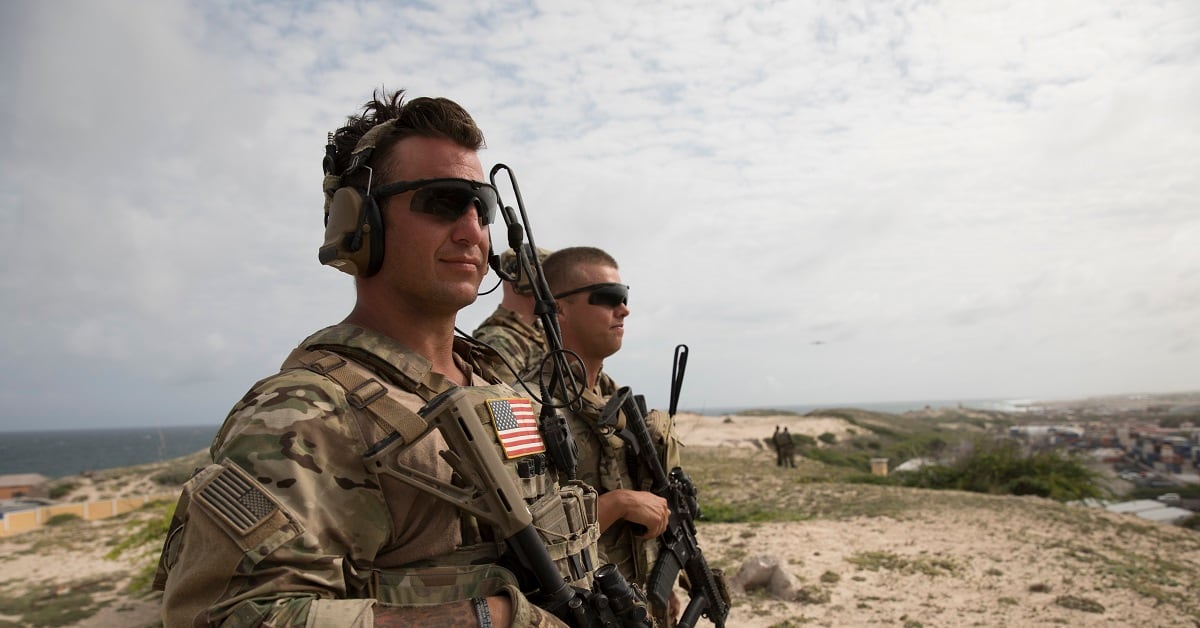
Al-Shabaab has also pledged allegiance to al-Qaida, according to U.S. government analysts.
Airstrikes degrade al-Shabaab’s ability to recruit, train, and plot terror attacks in Somalia and East Africa, which ultimately prevents the group from acting on its more global impulses like targeting Americans and other westerners, Karns said.
The U.S. government is assisting the African Union mission in Somalia, or AMISOM, a regional peacekeeping operation operated by the African Union with United Nations Security Council approval.
“Incremental progress is occurring." Karns said. "Two years ago al-Shabaab maintained a level of freedom of movement that allowed the group to terrorize and displace Somali citizens in the Lower Juba River Valley, which is near Kismayo,”an important Somali port city.
“Today, our Somali and AMISOM partners have pushed the extremist group back up the river valley, establishing multiple combat outposts along the way in order to ensure our partners can hold the territory they have successfully retaken.”
Al-Shabaab still controls roughly 20 percent of Somalia, mostly in its south, where the group has been historically strong. Another militant group aligned with the Islamic State holds sway in northern Somalia’s Puntland region, and to a lesser extent, Mogadishu, according to Karns.
“We assess there are 5,000 to 7,000 al-Shabaab fighters and 150 to 300 ISIS-Somalia fighters located in Somalia,” he said.
Kyle Rempfer was an editor and reporter who has covered combat operations, criminal cases, foreign military assistance and training accidents. Before entering journalism, Kyle served in U.S. Air Force Special Tactics and deployed in 2014 to Paktika Province, Afghanistan, and Baghdad, Iraq.
